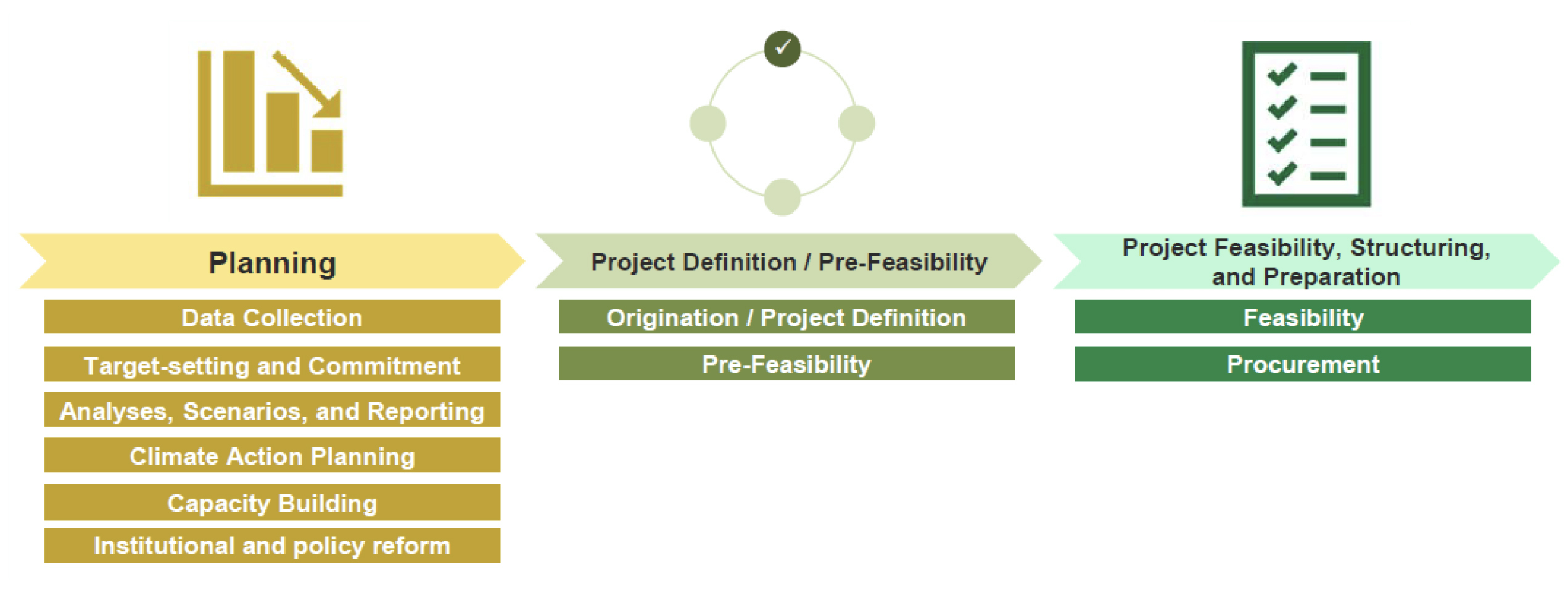The Global Covenant of Mayors for Climate and Energy (GCoM) is an international alliance of cities and local governments with a shared long-term vision of promoting and supporting voluntary action to combat climate change and move to an inclusive, just, low emission, and resilient society. The initiative is jointly funded by the European Union and Bloomberg Philanthropies and supported through a global network of partners, including C40, ICLEI, UCLG, Eurocities, Energy Cities and Climate Alliance. There are currently over 160 GCoM member cities in the U.S., all of whom have made a commitment to reduce greenhouse gas (GHG) emissions and prepare for the impacts of climate change.
GCoM has been working in the U.S. with partners such as the Urban Sustainability Directors Network (USDN), ICLEI USA, C40 and others to build a program that will help support U.S. cities in their efforts to reduce GHG emissions and become more resilient to climate change. One key objective of the initiative is to provide resources on financing climate action. Cities and regions across the United States regularly face challenges to secure resources or funding for climate action whether that be for planning, project feasibility, or project implementation. Buro Happold has worked with the European Union’s International Urban Cooperation (IUC) program and GCoM to develop an online tool for providing useful information to cities and regions as it relates to key sources for climate funding. The GCoM Climate Funding Tool will help cities and regions better understand the major sources for climate funding, their applicability to different sectors and stages of project development, and peer governments that have successfully secured different funding types. The focus for this tool was on nationally available funding mechanisms that are readily available to local jurisdictions across the United States. The hope is that these resources will provide cities with needed guidance on what funding sources are available for their climate action work, across different stages of a project’s development. Some funding sources are larger and more geared towards implementation and outcomes, while others are smaller and more supportive to planning and project definition stages. A typical city climate project planning and development cycle is illustrated below.


This Climate Funding Options Report summarizes the content from the online tool and provides general recommendations for cities and regions to position themselves for this funding. This Report outlines fifteen primary funding sources for climate-related work in the U.S. including a description of the funding source, deadlines or timeframes, relevant sectors, example programs, inspiring case studies, and useful links and resources.





